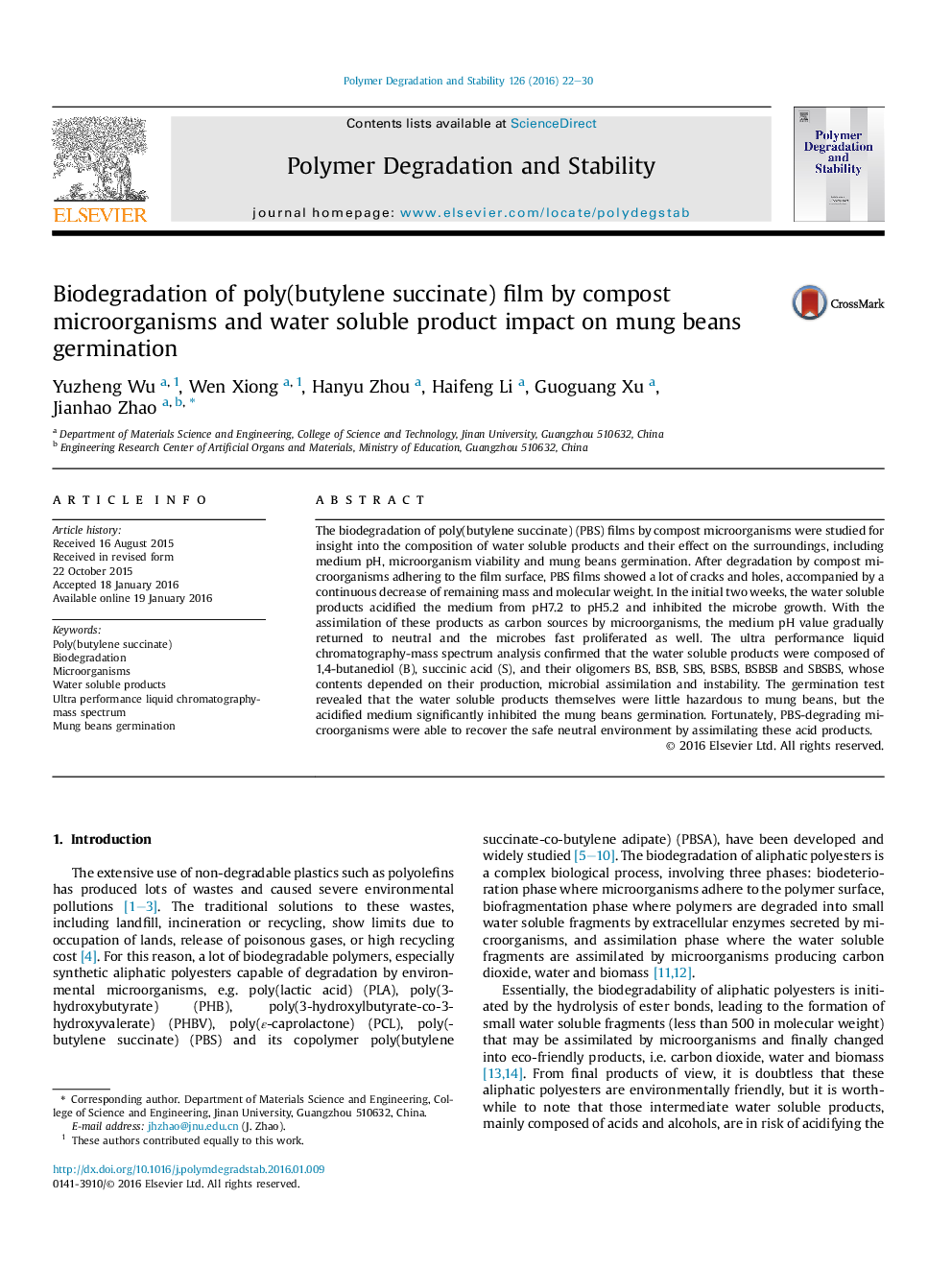| کد مقاله | کد نشریه | سال انتشار | مقاله انگلیسی | نسخه تمام متن |
|---|---|---|---|---|
| 5201256 | 1502887 | 2016 | 9 صفحه PDF | دانلود رایگان |
The biodegradation of poly(butylene succinate) (PBS) films by compost microorganisms were studied for insight into the composition of water soluble products and their effect on the surroundings, including medium pH, microorganism viability and mung beans germination. After degradation by compost microorganisms adhering to the film surface, PBS films showed a lot of cracks and holes, accompanied by a continuous decrease of remaining mass and molecular weight. In the initial two weeks, the water soluble products acidified the medium from pH7.2 to pH5.2 and inhibited the microbe growth. With the assimilation of these products as carbon sources by microorganisms, the medium pH value gradually returned to neutral and the microbes fast proliferated as well. The ultra performance liquid chromatography-mass spectrum analysis confirmed that the water soluble products were composed of 1,4-butanediol (B), succinic acid (S), and their oligomers BS, BSB, SBS, BSBS, BSBSB and SBSBS, whose contents depended on their production, microbial assimilation and instability. The germination test revealed that the water soluble products themselves were little hazardous to mung beans, but the acidified medium significantly inhibited the mung beans germination. Fortunately, PBS-degrading microorganisms were able to recover the safe neutral environment by assimilating these acid products.
Journal: Polymer Degradation and Stability - Volume 126, April 2016, Pages 22-30
